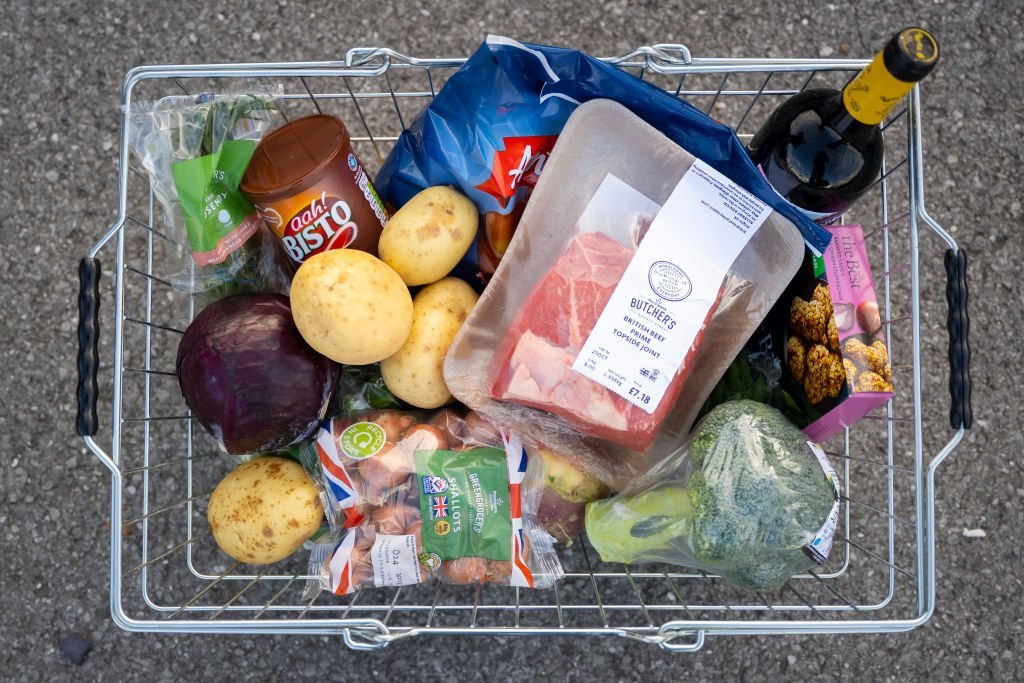
What influences UK consumers' supermarket preferences?
Supermarket chains experienced a boost in Ad Awareness during the recent festive season, with discount brands Lidl and Aldi reporting record sales. But what guides UK adults in choosing a supermarket for their daily essentials? Unlocking these consumer preferences is not just valuable for retailers; it's a crucial insight for marketers navigating the retail landscape.
A recent YouGov survey offers insights into the influences guiding these choices across various income brackets.
Unsurprisingly, lower prices emerge as a dominant factor, with 58% of all UK respondents acknowledging its impact on their decision-making process. This emphasis on affordability underscores the enduring significance of budget considerations in consumers' choices given the current economic situation.
Proximity to one's residence or workplace closely follows, influencing 56% of participants. The significance of convenience is further highlighted by the fact that 50% of respondents prioritise supermarkets based on the availability of products they need.
Data further reveals, discounts and loyalty card programmes emerge as notable factors, each influencing 39% and 38% of respondents, respectively. Additionally, while 33% of participants consider the availability of parking space as a factor, only 2% of respondents would look for a supermarkets with electric vehicle (EV) charging facilities.
Customer service and the quality of products offered by supermarkets both weigh in at 28%, reflecting a balanced emphasis on both service excellence and quality of the goods. Brand loyalty is a consideration for 13% of respondents, indicating that some consumers may have established preferences, while a majority are swayed by other factors.
Delving into the data categorised by gross household income, a nuanced picture emerges. One of the most fundamental considerations for consumers, cost-of-living, is reflected in the survey's findings with the influence of lower prices. Nearly three in five respondents (59%) earning under £39,999 per year prioritise lower prices when choosing a supermarket. The percentage decreases slightly as income rises, with 58% and 52% of those earning £40,000 to £99,999 and £100,000 and over, respectively, citing lower prices as a decisive factor.
Proximity plays a crucial role in consumer decision-making, more so for those with a household income of over £100,000 per year (58%). But it’s also a deciding factor for 56% of those earning under £39,999 per year and 56% of those earning £40,000 to £99,999.
Product availability is a critical factor for consumers, with 50% across all income groups emphasising the importance of a supermarket carrying the products they need. While 38% of those earning under £39,999 per year consider discounts a pivotal factor, the numbers rise slightly to 40% for the middle-income group and decrease to 36% for those earning £100,000 and over. The desire for a wide variety of products follows a similar pattern, with 38%, 39%, and 45% of respondents in the respective income brackets expressing a preference for supermarkets with an extensive product range.
Customer loyalty programmes, a popular marketing strategy employed by supermarkets, attract a substantial percentage of shoppers. Notably, 38% of those earning under £39,999, 40% of the middle-income group, and 31% of those earning £100,000 and over participate in these programmes.
Good customer service is more important to lower-income consumers when compared with high quality products (30% vs. 24%). The opposite is true for middle- and higher-income consumers with 25% and 32% looking for good customer service and 30% and 42% finding high quality products a critical factor, respectively.
Brand loyalty exhibits a clear correlation with income, as only 11% of those earning under £39,999 per year express loyalty to a particular brand, compared to 13% in the middle-income group and a notable 24% among those earning £100,000 and over.
While availability of parking space is considered by roughly a third of consumers across all income brackets, the consideration of EV charging facilities increases ten-fold in higher income brackets (from 1% to 10%), highlighting the evolving landscape of consumer priorities.
The factors influencing the choice of supermarkets for daily essentials in the UK demonstrate a complex interplay of considerations.
Make smarter business decisions with better intelligence. Understand exactly what your audience is thinking by leveraging our panel of 20 million+ members. Speak with us today.
Methodology: YouGov Surveys: Serviced provides quick survey results from nationally representative or targeted audiences in multiple markets. This study was conducted online on November 29-30, 2023, with a nationally representative sample of 2,074 adults in the United Kingdom (aged 18+ years), using a questionnaire designed by YouGov. Data figures have been weighted by age, gender, education, social grade and region to be representative of all adults. Learn more about YouGov Surveys: Serviced.
Image: Getty Images